Microsoft Sql Database Design Tool
SQL Server Database Diagram Tool in Management Studio
By: | Updated: 2019-12-17 | Comments (6) | Related: More > Database Design
Problem
Often sophisticated tools such as ER/Studio or ERWIN are used to create database diagrams, but these are not necessary to create simple database diagrams, print them or convert to a Microsoft Word document or to PDF to save and share with your team. In this tip we will walk through how to create a database diagram using SQL Server Management Studio (SSMS).
Solution
Using Microsoft's sample database WideWorldImporters, I will demonstrate creating a simple database diagram of a limited number of tables focusing on Invoice related tables in the database. I'll then copy the Database Diagram to MS Word so it can be saved and printed.
Step 1 – New Database Diagram using SQL Server Management Studio
In SSMS under the database WideWorldImporters, right click "Database Diagrams" and select "New Database Diagram".
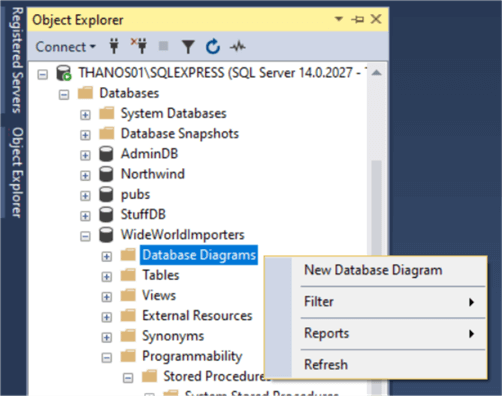
Step 2 – From Database Diagram – Select a table
From the Database Diagrams tool dialog scroll and select Invoice table. Press Add and then Close.
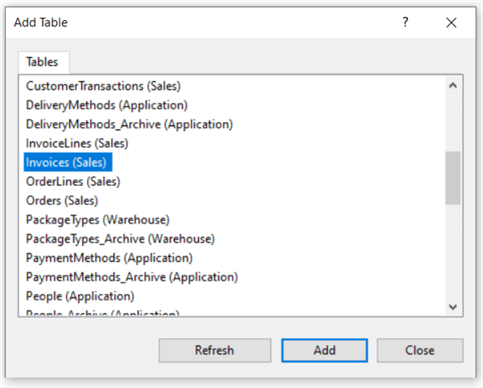
Step 3 – From Database Diagram – Add Related tables
Right click the Invoices table and select "Add Related Tables". This automatically adds tables linked to the Invoices table by Foreign Keys of which the Invoices table is a foreign key.
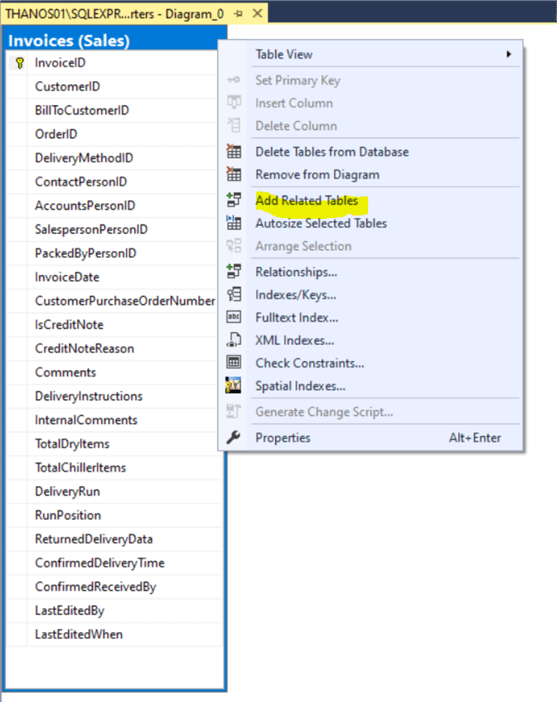
Step 4 – Eliminate Unwanted Tables from the Diagram
Right click on any table that might clutter the diagram and that you feel is not important and select "Remove From Diagram".
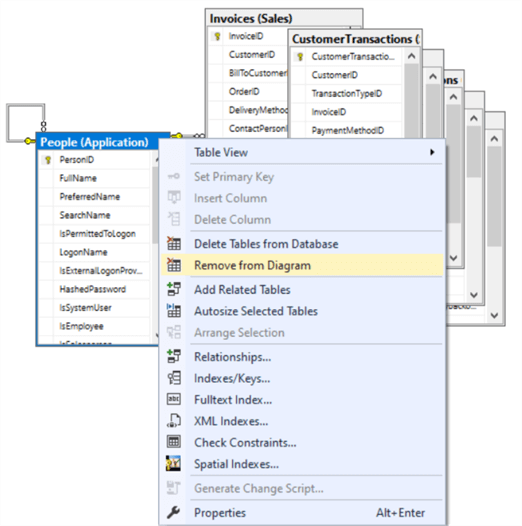
Step 5 – From Database Diagram – Auto Arrange Tables
Right click the Invoices table and select "Arrange Tables". This organizes the tables with out overlapping.
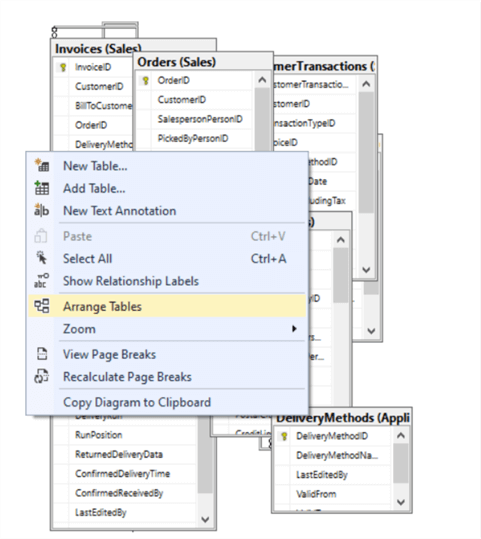
Step 6 – From Database Diagram – Adjust the Layout
You can do the following:
- Right click to select a Zoom level to see your tables.
- Drag a table to adjust the positioning.
- Click a table and put the cursor on the edge to resize the table layout.
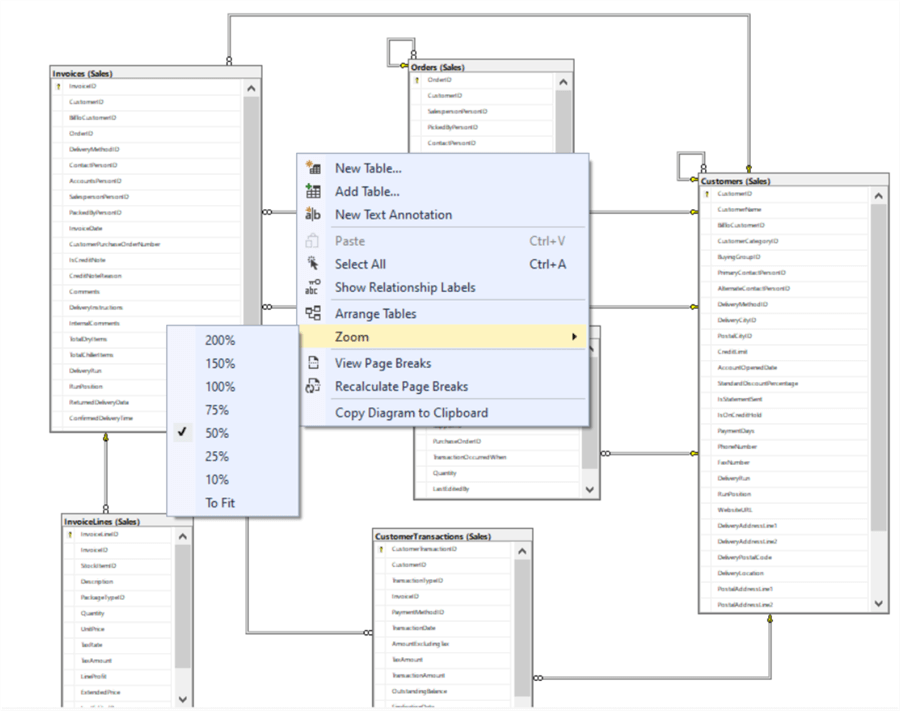
Step 7 – From Database Diagram – Auto Size All Tables
Use CTRL + A to select all tables. Right click any highlighted table and select "Autosize Selected Tables". Select and drag the connector lines to rearrange.
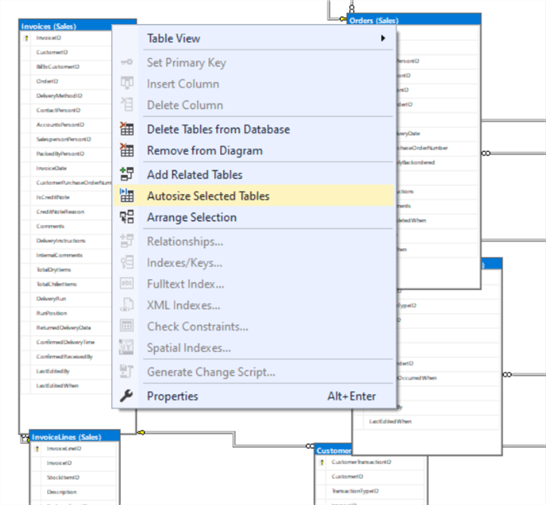
Step 8 – From Database Diagram – Copy to Clipboard
Once the Diagram is sized and arranged as desired, hit Save and give your Diagram a name. Then right click any white space in the Diagram and select "Copy Diagram to Clipboard".
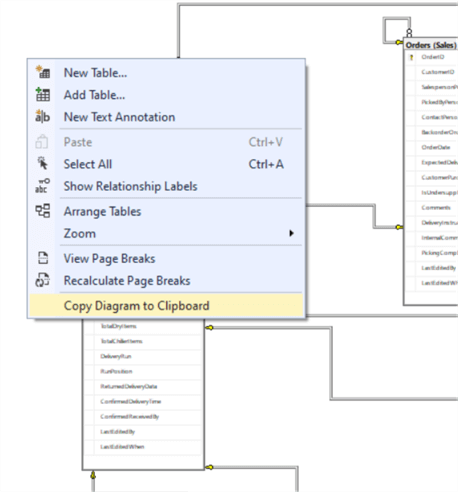
Step 9 – Paste the Diagram to MS Word
Open Microsoft Word. Insert a single cell Table and paste the Database Diagram in the cell.
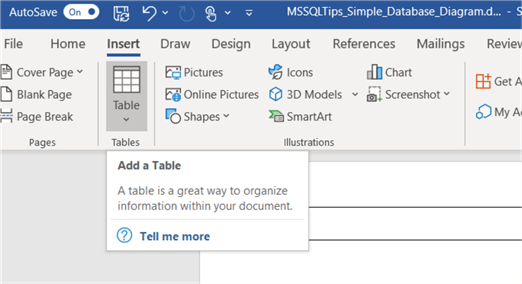
Step 10 – In Word Adjust and Maximize the Database Diagram Image
Adjust the Word document to maximize the database diagram image. Change the margins to .5 inch, enter the image and resize it to enlarge. Below is a snippet from a Word document Database Diagram.
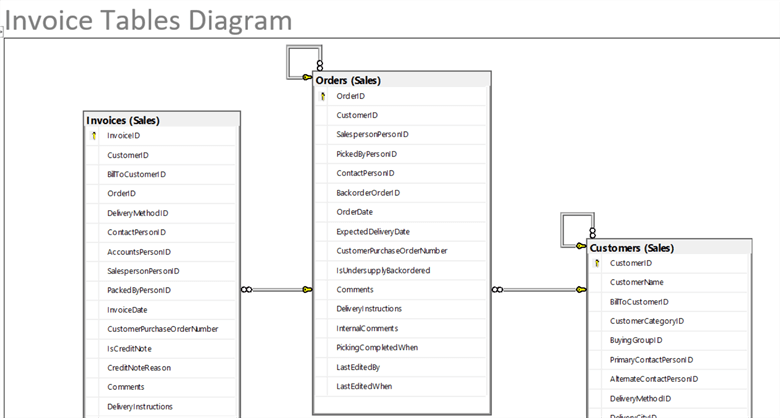
Wrap Up
Once the diagram is in Word you can print it, share it, or save as a Word Doc or PDF file. This is an effective way to create simple limited Database Diagrams that can be leveraged when documenting your database. I find creating partial database diagrams around logical groups of tables a good way to document a database. There are other options that can be done in SSMS Database Diagrams such as only showing the Table Names and Relationships or only displaying the Key Columns which may allow more tables to be added to the Database Diagram and still fit in a Word document.
Next Steps
- Also check out more on Reverse engineering a database
- For addition details about SSMS Database Diagrams read Getting Started with SQL Server Database Diagrams
- Learn more about Working with Database Diagrams from Microsoft SQL Docs
Related Articles
Popular Articles
About the author
 Jim Evans is an IT Manager currently with Harsco who has managed DBAs, Application and BI Developers and Data Management teams for over 20 years.
Jim Evans is an IT Manager currently with Harsco who has managed DBAs, Application and BI Developers and Data Management teams for over 20 years.
View all my tips
Article Last Updated: 2019-12-17
Microsoft Sql Database Design Tool
Source: https://www.mssqltips.com/sqlservertip/6269/sql-server-database-diagram-tool-in-management-studio/
Posted by: marshallknowded.blogspot.com

0 Response to "Microsoft Sql Database Design Tool"
Post a Comment